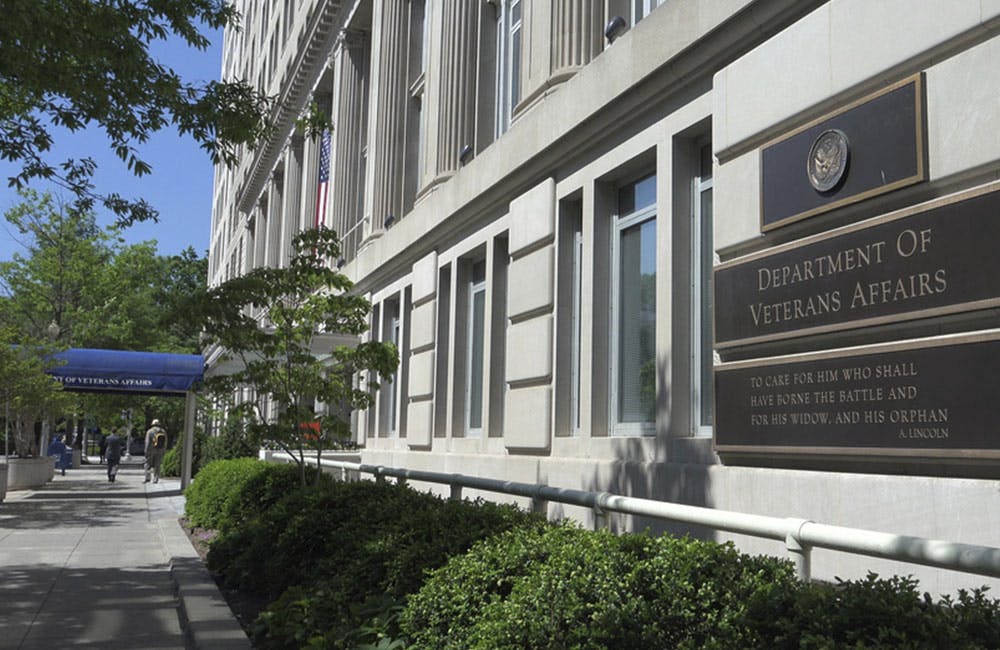AI is Supporting Cybercrime Investigations at the Secret Service
The service is using emerging capabilities to analyze billions of data records and detect financial crimes.

Most people are aware of the U.S. Secret Service’s mission to protect the president, but not everyone knows that the service is also responsible for investigating financial crimes — a landscape that has drastically changed following the advent of crypto laundering.
“I come from the old days when you followed the money on a paper trail,” said Roy Dotson, assistant special agent in charge and national pandemic recovery coordinator at the Secret Service, at an ATARC event. “But now cybercrime is probably the top priority of our agency in what we do day to day — whether that’s a business email compromise or ransomware or an [Investment Coin Offering (ICO)] for crypto — whatever the flavor of the day is.”
Currently, pandemic-relief fraud is a major focus for the agency, which estimates that nearly $100 billion was lost in stolen funds. Most cases of government-relief fraud involved the use of cryptocurrency, which is notoriously difficult to trace.
“Particularly during the last two years with pandemic relief fraud, we’ve seen an enormous increase in the amount of cyber or cyber-enabled fraud just based on the processes there,” Dotson said. “We’ve created a Global Investigative Operations Center, kind of a command center, during this time period just because of the overall activity. We created a cryptocurrency section because the use of that majorly ramped up during the pandemic.”
The Service has massive amounts of data to analyze in its cybercrime investigations, which is where AI/ML capabilities come into play.
“We’re talking billions of records that we have to try to cipher through,” Dotson said. “Thanks to the advancements of AI and ML, we’re able to develop some very good criminal leads that we’ll be able to follow up on that normally law enforcement just wouldn’t have the capability of doing. It gives us a better chance of working cases faster and identifying suspects quicker. That can help us to possibly apprehend people that we might not have had the chance to before because of the time delay.”
AI/ML capabilities are the key to the service’s shift from reactive to proactive investigation.
“We are out trying to find cases and developing those investigations,” Dotson said.
This is a carousel with manually rotating slides. Use Next and Previous buttons to navigate or jump to a slide with the slide dots
-

White House Science Chief: US-Driven AI Sets Global Standards
Michael Kratsios outlined how American AI technology on the global stage will help standardize the tech and counter China’s influence.
5m read -

Modernizing Critical Infrastructure in the Face of Global Threats
Officials are expanding the latest strategies in boosting defense infrastructure, including securing satellite communications, upgrading enterprise-wide technology, optimizing data management.
20m watch -

Trump AI Orders Call for Speed in Building Infrastructure
The directives call for expanding AI infrastructure, streamlining federal permitting and promoting AI exports.
4m read -

DOD Accelerates Software Modernization with Agile DevSecOps Push
The Pentagon's software implementation plan tackles cultural hurdles and integrates security early to deliver critical capabilities faster.
6m read -

White House Unveils AI Action Plan to Secure Global Dominance
The strategy outlines steps to accelerate private sector innovation, build critical infrastructure and advance U.S. leadership in AI policy and security.
3m read -

VA's Platform One Powers Rapid Innovation to Bolster Digital Services
VA's Platform One accelerates software development timelines from weeks to hours, ultimately enhancing digital services for veterans.
5m read -

Opinion: Original Intelligence Is the Missing Piece for AI Transformation
Limitations of AI agents and development drive growing needs for workforce development and "original intelligence."
3m read -

Pentagon's $200M AI Contracts Signal Broader Effort to Transform Talent
The Army is leveraging Silicon Valley, reservist programs and new hiring strategies to integrate critical digital skills in its ranks.
5m read -

AI Foundations Driving Government Efficiency
Federal agencies are modernizing systems, managing risk and building trust to scale responsible AI and drive government efficiency.
43m watch -

Agencies Tackle Infrastructure Challenges to Drive AI Adoption
Federal agencies are rethinking data strategies and IT modernization to drive mission impact and operational efficiency as new presidential directives guide next steps.
5m read Partner Content -

Generative AI Demands Federal Workforce Readiness, Officials Say
NASA and DOI outline new generative AI use cases and stress that successful AI adoption depends on strong change management.
6m read -

The Next AI Wave Requires Stronger Cyber Defenses, Data Management
IT officials warn of new vulnerabilities posed by AI as agencies continue to leverage the tech to boost operational efficiency.
5m read
















